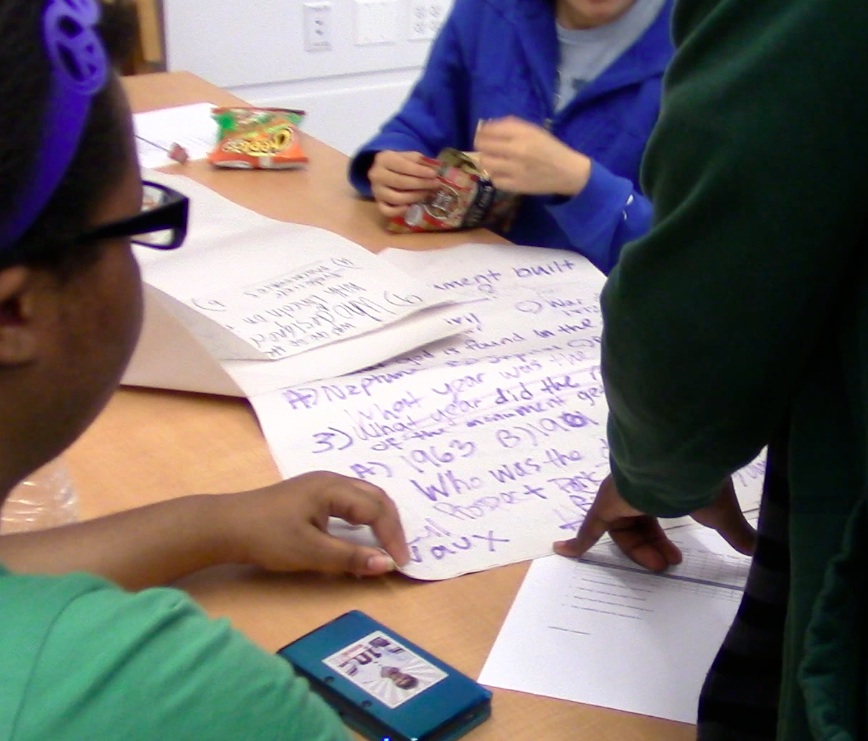

- About
- Resources
- Support
- Login | Register
Using TaleBlazer
TaleBlazer For Organizations

Organizations such as zoos, nature centers, historic locations, living history museums, schools, universities, and many others can use augmented reality games to engage visitors deeply with their real-world environment. The MIT STEP lab has collaborated closely with several organizations to develop AR games which expand their offerings through interactive, rich games.
The Columbus Zoo & Aquarium, for example, has used TaleBlazer to develop several AR games offered to field trip groups. These games allow students to experience live animal exhibits within the broader context of role playing as science journalists investigating global climate change (Race Against Time) or detectives investigating a crime while learning about the illegal wildlife trade (Zoo Scene Investigators).
TaleBlazer For Teachers

TaleBlazer games can be compelling resources which engage students in thoughtful role-playing, exploration or investigation. Students can play AR games designed around nearly any subject. Our TaleBlazer editor makes it easy for students to make their own AR games.
As part of our NSF-funded work, we continue to develop curriculum for after-school and week-long intensive enrichment camps. Materials can be made available for educators who wish to use TaleBlazer with their students.
TaleBlazer For Researchers

The MIT STEP lab's research on the educational affordances and efficacy of augmented reality games and toolkits has been ongoing for over a decade. The first of our AR games, Environmental Detectives (ED), is an outdoor game in which players using GPS guided handheld computers try to uncover the source of a toxic spill by interviewing virtual characters and conducting large scale simulated environmental measurements and analyzing data.
This game has been run at three sites, including MIT, a nearby nature center, and a local high school. Early research has shown that this mode of learning is successful in engaging university and secondary school students in large scale environmental engineering studies, and providing an authentic mode of scientific investigation.
More recent projects include research collaborations with the Columbus Zoo & Aquarium, as well as three NSF grant projects, including Local Investigations of Natural Science (LIONS) (NSF# 0639638), Community Science Investigators (CSI) (NSF# 0833663).
Our latest research in collaboration with the Missouri Botanical Garden explores the application of AR technologies and pedagogies in informal learning settings, aimed at engaging youth and their families in STEM-related content via AR games at zoos and botanical gardens (Informal Community Science Investigators (iCSI), NSF# 1223407).
